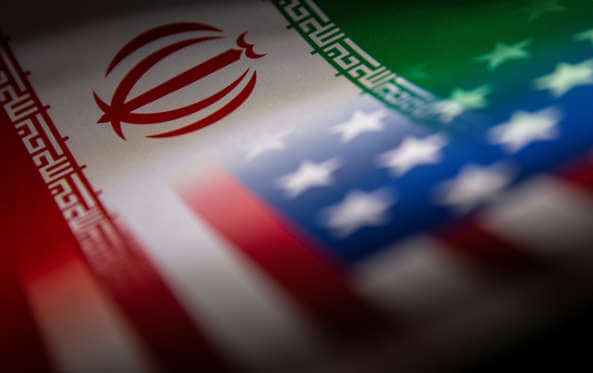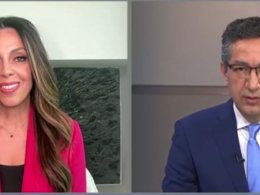In Doha, Qatar the Islamic Republic of Iran, the European Union, and the United States began indirect talks today over the issue of reviving the 2015 nuclear agreement. In past months, Iranian and U.S. officials have vehemently disagreed over the different measures and concessions, with U.S. officials frustrated at Iran regime officials unwilling to compromise demands related to the Islamic Revolutionary Guards Corps (IRGC) and threats against former U.S. officials.
According to reports, Ali Bagheri Kani, Iran's top nuclear negotiator, met with European Union official Enrique Mora in Qatar after meeting with Qatari government officials with the Islamic Republic's local ambassador. The E.U. official passed messages between Americans and Iranians over the demands from each side as well as agreements and disagreements.
Experts and groups familiar with Iran and its nuclear ambitions, like United Against Nuclear Iran (UANI), have argued against such talks in Qatar, claiming that it provides the regime with numerous benefits and helps their tyrannical rule. In a recent joint statement, UANI Chairman Senator Joseph I. Liberman (I-CT) and CEO Ambassador Mark D. Wallace explained that resuming negotiations with Iran over the 2015 nuclear agreement is a "terrible mistake."
The U.S. special representative for Iran, Robert Malley, arrived in Qatar Monday night to meet with Qatar Foreign Minister, Mohammed bin Abdulrahman Al Thani, to discuss how Qatari and U.S. officials could work together diplomatically to address ongoing concerns with Iran. Minister Al Thani exclaimed that he was glad to host the ongoing diplomatic talks to reestablish the 2015 nuclear deal, hoping to enhance security, stability, and peace in the Middle East and create potential new regional cooperation and dialogue with the Islamic Republic of Iran and the West.
The recent statement from UANI explains that "a bipartisan majority of U.S. senators made it clear to the Biden administration just last month that they want to see an Iran policy that moves beyond reviving this failed former agreement. Over the same weekend of E.U. Representative Borrell’s announcement, the regime evaluated a satellite launch vehicle, marking another advancement of its ballistic missile program, which threatens our allies in the Middle East and American personnel there."
Both Lieberman and Wallace note the issues with negotiating with Iran given the ongoing French citizens held hostage in regime prisons, the threats to execute Swedish-Iranian individuals like Ahmadreza Djalali, the reported cyberattack against a kid’s hospital in Boston, the threats advocated by IRGC officers and Islamic government officials against former members of the Trump Administration, and many other issues. The two argued that the U.S. and its European allies should "cease all negotiations and enforce all sanctions until Tehran changes its behavior and is no longer a threat to international peace and security."
The Islamic Republic of Iran has increased tensions with the U.S. ever since the Trump administration pulled out of the 2015 nuclear agreement in 2018, subsequently enacted its maximum pressure campaign against the regime, and killed Quds Force Chief Qasem Soleimani in 2020. Since then, the Islamic Republic has felt increasingly isolated and has resorted to increasing its terrorist activities in the Middle East. With the Biden administration in power, the Supreme Leader and his Islamic officials are hoping to obtain increased concessions from the U.S., including economic sanctions relief to support the government and supply its terrorist proxies like Hamas and Hezbollah.
Speaking on behalf of UANI, Senator Lieberman and Ambassador Wallace called on the Biden administration to not reenter the Joint Comprehensive Plan of Action (JCPOA) and provide sanctions relief in exchange for negotiations but instead return to the "gold standard" of zero domestic enrichment and reprocessing. The Biden administration must "address the Islamic government's unacceptable non-nuclear behavior, return to bipartisanship, consult with regional allies and partners most threatened by Iran's malign behavior, and demand a release of all foreign hostages held by Iran."










